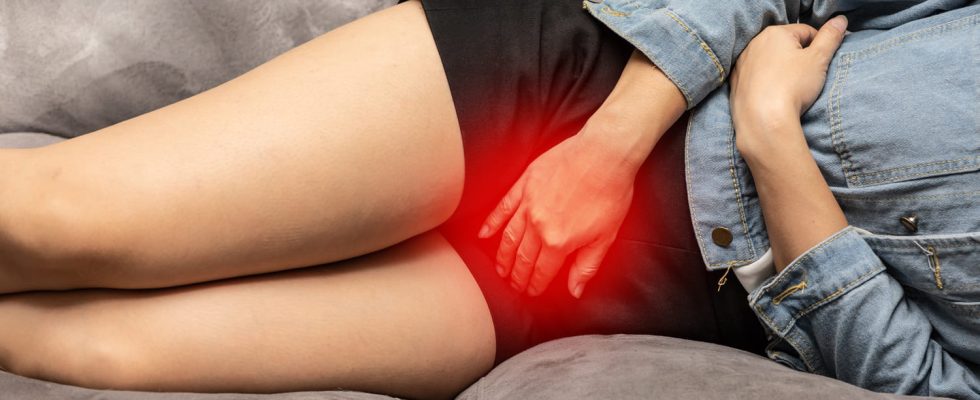Because they decrease the urinary pH and acidify the urine, certain drinks should be avoided in the event of cystitis.
It’s well known, in case of cystitis, it is necessary to drink For promote the elimination of germs. But be careful with the drinks chosen. “Based on the experience and listening to women and men, certain drinks contribute to unpleasant symptoms“ reports Pr. Franck Bruyère, urologist and head of the infectiology committee of theFrench Association of Urology. Which to avoid?
- Sodas and soft drinks: they decrease the urinary pH and acidify the urine through the sugar they contain.
- coffee and tea : “In women who have bladder irritation, symptoms and local inflammation tend to be increased. The more you urinate, the more it burns” let Prof. Bruyère know. The situation is similar for tea, but it all depends on what type of tea. Black tea, green tea, matcha tea, white tea… Each tea has a diuretic and irritant action of varying levels.
- The alcohol in general and more particularly the white wine and sparkling wine. According to the expert, this is not necessarily due to the fact that it dehydrates, since women who hydrate a lot also report a worsening of the situation after drinking spirits. On the other hand, white wine or Champagne modifies the urinary pH which can acidify the urine.
Which drinks to choose, then?
Prof. Franck Bruyère advises beverages that increase urinary pH. He mentions in particular waters like Hépar and Vichy. On the side of the cranberryreputed to be beneficial, it is proven that it “reduces the risk of recurrence in case of recurrent E. coli cystitis, provided that there is no bladder emptying disorder”, according to the doctor. THE juices sold in supermarkets are not however not focused enough in type A proanthocyanidins, an antibacterial molecule, to have an effect – unless you drink tens of liters a day. Cranberry food supplements, specially designed to fight against cystitis, are available in pharmacies and parapharmacies.
If the symptoms do not pass, consult. The diagnosis is made during a clinical medical examination and will be completed by a dipstick (in the laboratory, at home or in the doctor’s office) which makes it possible to highlight the presence of white blood cells and nitrites in urine. A cytobacteriological examination of the urine (ECBU) makes it possible to confirm the presence of germs, therefore the urinary tract infection.
